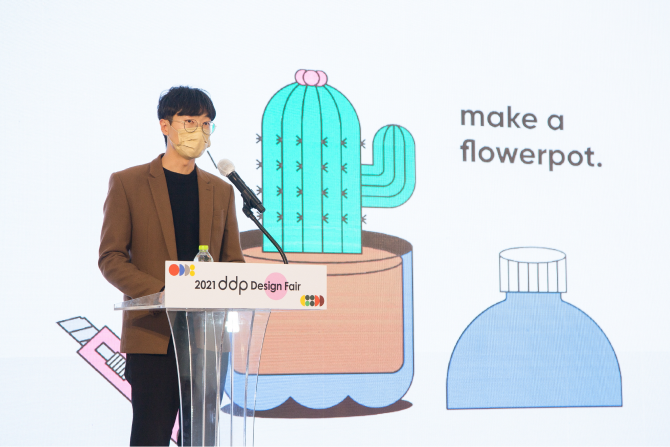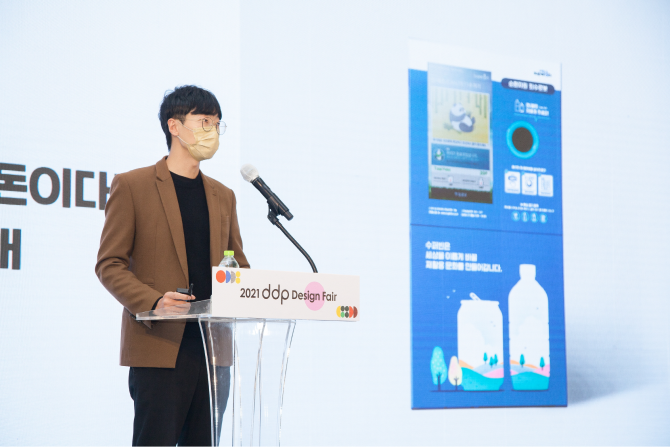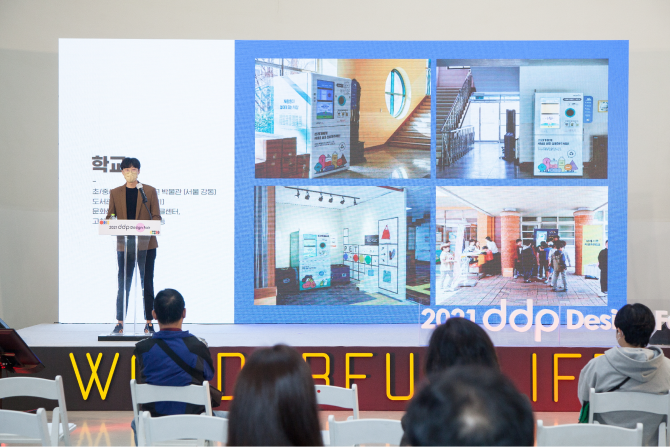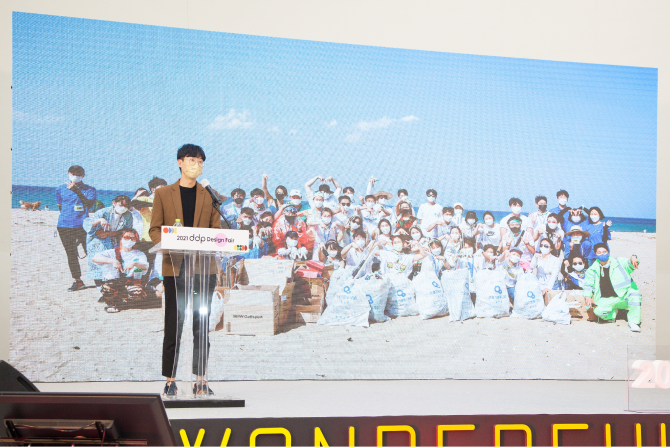Magazine
Design incorporates objects, people,
ideas based on the small pleasures of everyday life.
Meet your wonderful design world with the DDP Design Fair.




Turning waste into money. Making recycling fun.
SuperBin - Waste culture
Fori (Head of SuperBin’s Branding Team)
I’m responsible for SuperBin’s overall branding strategy and design projects. SuperBin is a company that practices the value of “turning waste into money and making recycling fun”. Waste is a very serious problem across the globe. In the past, garbage was out of sight, out of mind for many individuals. They used to think the problem was gone once they take out and dispose of their garbage and their space becomes clean and pleasant. However, the problem of waste has become an increasingly serious issue and is posing a threat to human life again. It is not only causing problems to human beings but also starting to destroy the entire ecosystem. In particular, many Southeast Asian countries have been accepting container loads of waste from advanced countries and burying them somewhere in return for subsidies. These days, people sort and dispose of recyclable plastic waste. They even feel a sense of accomplishment when they separate their trash into different bins for recycling. However, have you ever thought about where all the waste goes and what happens to it?
SuperBin was established to find ways to create a positive economic structure. It took about five years to start the business, and it has evolved into what you see now. SuperBin diagnosed that the existing waste sorting system is not functioning properly, identified that the waste sorted by the system introduced by the Ministry of Environment cannot be recycled and concluded that companies will not reuse recyclable materials if they are not sorted properly at the first place. That’s why we tried to focus on establishing an effective waste sorting process to start off on the right foot. With AI technology, we tried to build a process to obtain clean resources, which used to be sorted manually, deliver them through an accurate logistics system without letting different types of materials being mixed with each other, process them into useful materials and supply them to companies to manufacture products. We are designing a system to create a circular economy and reduce the amount of waste sent to landfill, incinerated or ended up in oceans or mountains.
First of all, we hope the government also joins the movement to install reverse vending machines. Second, we hope the citizens are eager to participate. If the citizens take an active part in this movement, local governments and companies will have no choice but to follow. For consumers, the best way to impact large companies is not purchasing products that are designed to be eco-friendly. To make profit, companies cannot help but consider the environmental impacts. Therefore, we think that environmental problems can be solved only when the government, companies and consumers bring change together.
| 이전글 | “Design , How to Sell?” |
|---|---|
| 다음글 | The 2021 DDP Design Fair Seminar |







